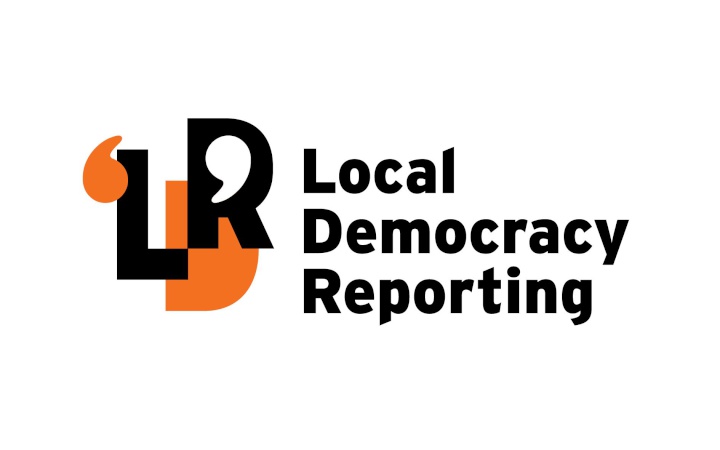Small councils “won’t survive” government reforms to water services and need to join forces to cut costs, Carterton Mayor Ron Mark says.
He urged his neighbouring councils to stop fighting amalgamation and said there was no room for “fiefdoms doing their own thing” in the future.
Wairarapa's three mayors - Carterton, Masterton and South Wairarapa - have clashed in recent times over the idea to amalgamate their councils.
This week, South Wairarapa’s Mayor Martin Connelly said Mark's view was “very uninformed”.
“There are smaller councils than his, that think they will carry on very satisfactorily,” Connelly said.
“We are just at the start of the current reform process, and so much of what it involves is still subject to considerable uncertainty and conjecture.
“So, it is far too early to know what the long-term effects will be.”
Earlier this year, the Minister for Local Government outlined the next steps for the proposed Local Waters Done Well legislation, which replaces the previous Labour-led government’s Three Waters Reform.
The new approach includes a streamlined process for setting up water services council-controlled organisations, requirements for councils to develop Water Services Delivery Plans, and steps towards future economic regulation.
Mark said as a result of the reforms, councils were looking to divest their water assets into council-controlled organisations.
“If you take out the three waters provision, what is the council left doing? Roads, toilets, pubs, parks, brothels, vaping, gambling, all those regulatory things … can we survive? We won’t,” Mark said of his council.
“Can Wairarapa afford, going forward, to have three mayors, chief executives, chief financial managers, burgeoning staff, fiefdoms doing their own thing? We can’t.
“If we are to have any hope of managing rates increases post-three waters reforms, we will have to slash and burn administrative costs.”
The possibility of amalgamation is mentioned in the three Wairarapa councils’ joint submission on the water services bill to the Finance and Expenditure Select Committee.
“To bring the risks and complexities down to the Wairarapa level, it is feasible that the decision we make on joint arrangements may lead to a further set of questions about amalgamation of our authorities,” the joint submission said.
“What will be critical for us is clarity around the impacts on our ratepayers of splitting off our water assets and whether this will lead to stranded overheads that coupled with greater expectations around compliance and quality in the delivery of water services, results in an unacceptable cost imposed on our communities.”
Councils are currently asked to have a water services delivery plan by the end of June 2025.
The Wairarapa submission asked for an extension to July 1, 2026 “to enable us the time to avoid applying for an extension tying up valuable resources when we could have made provision for foreseen complexities such as a push for amalgamation upfront”.
Masterton Mayor Gary Caffell said while Masterton was big enough to remain standing on its own two feet once water services were carved out of council, “it will come at a cost to ratepayers unless we significantly reduce our levels of service”.
“We need to remain affordable for the communities we serve … if this means amalgamation, then we certainly are - as we always have been - up for the conversation especially if it can be shown that amalgamation would benefit smaller districts like ours in the Wairarapa."
This would be through the consolidating of administrative functions and services, leading to a reduction of duplication and lower overall costs, he said.
“Getting the water regime sorted out is the first priority though and we are hopeful the government will heed our call for a less restrictive timeframe.”
- LDR is local body journalism co-funded by RNZ and NZ On Air.



 Gordon Campbell: On What’s Wrong With The Treaty Principles Bill
Gordon Campbell: On What’s Wrong With The Treaty Principles Bill NZ National Party: National Acknowledges The Passing Of Hon Nikki Kaye
NZ National Party: National Acknowledges The Passing Of Hon Nikki Kaye Mana Mokopuna: Children And Young People Share Vital Insights On Healing From Family Violence And Sexual Violence In New Report
Mana Mokopuna: Children And Young People Share Vital Insights On Healing From Family Violence And Sexual Violence In New Report NZ Government: PM Marks One Year In Government
NZ Government: PM Marks One Year In Government Helen Clark Foundation: Helen Clark Foundation Calls For Political Action To Reduce The Prevalence Of Junk Food And Improve Health Outcomes
Helen Clark Foundation: Helen Clark Foundation Calls For Political Action To Reduce The Prevalence Of Junk Food And Improve Health Outcomes Justice Committee: Further Decisions About Submissions Process For The Principles Of The Treaty Of Waitangi Bill
Justice Committee: Further Decisions About Submissions Process For The Principles Of The Treaty Of Waitangi Bill Infrastructure New Zealand: Single Agency Needed To Coordinate Climate Adaptation And Recovery
Infrastructure New Zealand: Single Agency Needed To Coordinate Climate Adaptation And Recovery


